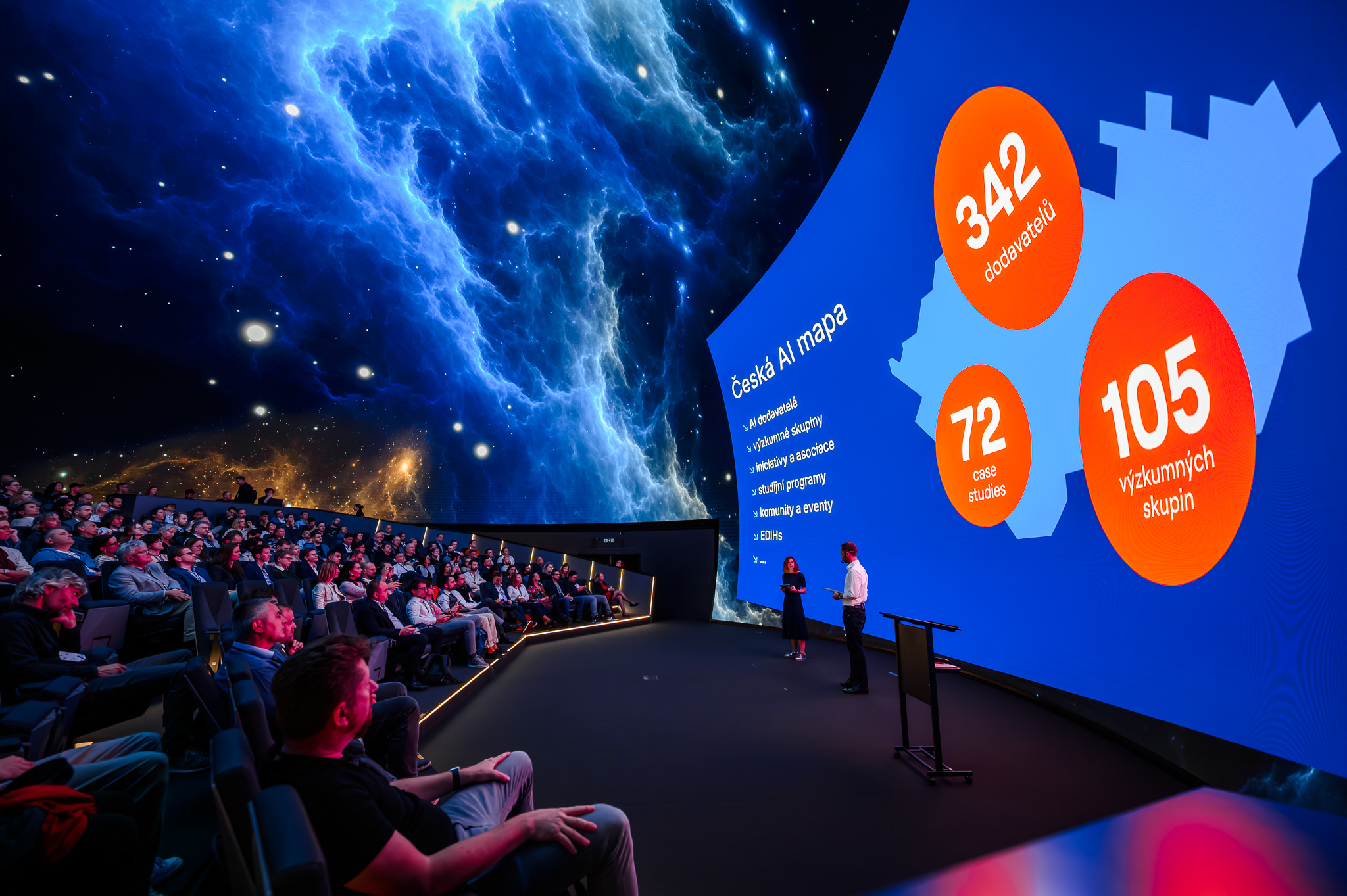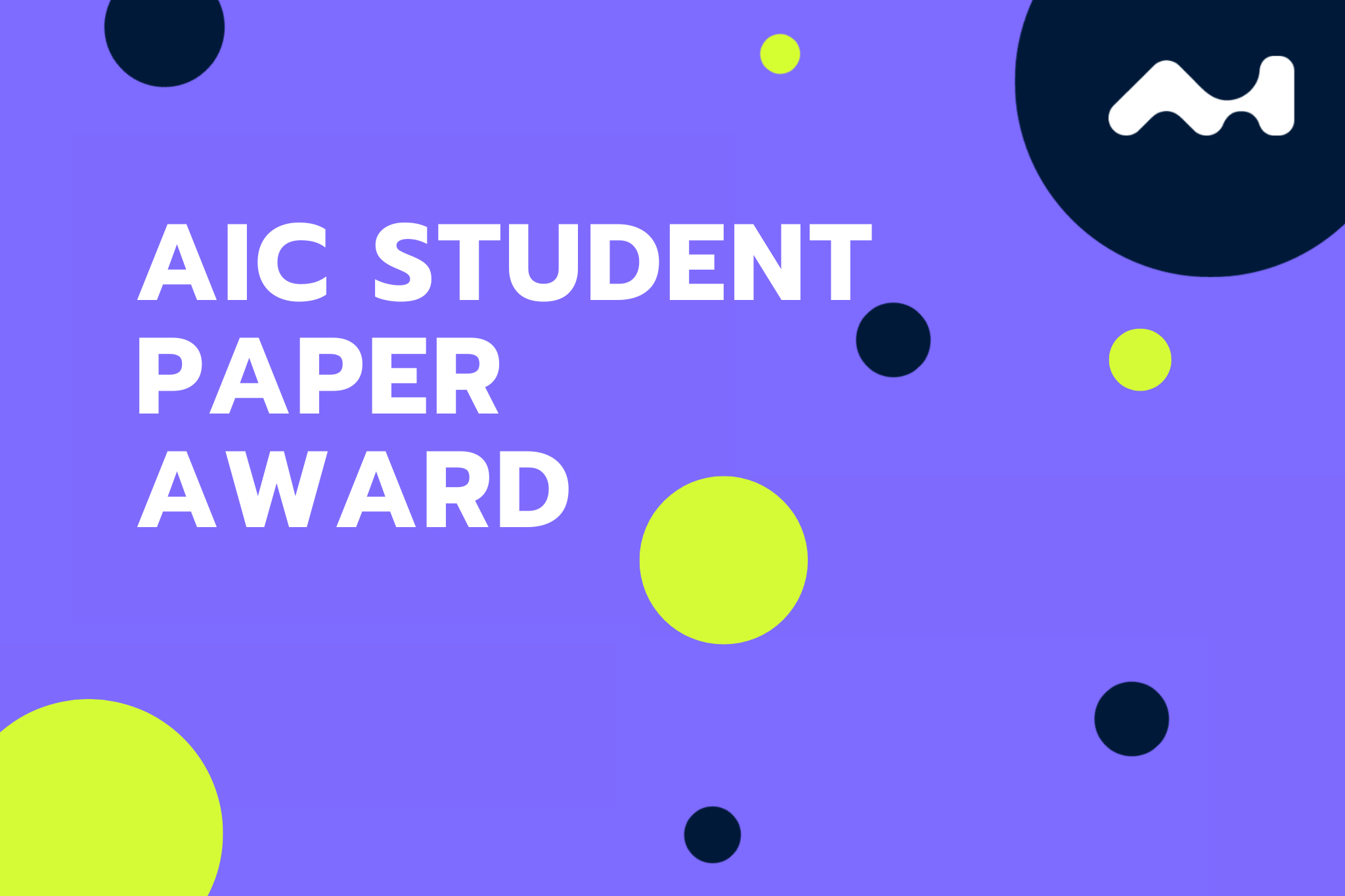Canada stands among the global leaders in AI due to scientific expertise, solid governmental strategy, and fast-paced innovation environment. Recent Czech mission with the participation of Tomáš Kroupa explored opportunities for collaboration in R&D and education.
Canada: two steps ahead
Have you ever wondered what country wholeheartedly supports AI on a comprehensive level? Canada must be on your top list without any doubt. Not only is it ranked fifth in the Global AI Index, but its national strategy for AI was the first of its kind in early 2017, and it is not an empty promise. The country has been working constantly on its implementation, with a primary focus on the commercialisation of AI research. It has established a robust support system for research through three national institutes and has successfully fostered collaboration with the private sector. For example, ScaleAI as a major cluster of private companies, universities, research centres and innovative start-ups, is a key pillar of the Canadian AI ecosystem. The cluster supports not only financially promising projects focusing on the application of AI in supply chains.
Undoubtedly, Canada is a great inspiration, which is symbolised by the fact that this mission in 2018 led to the establishment of prg.ai initiative. The latest Czech AI mission was organised by the Embassy of the Czech Republic in Ottawa, the Consulate General of the Czech Republic in Toronto, and Business and Investment Development Agency CzechInvest. The mission took place in the beginning of November, aiming to connect research, business, and partnership not only across universities. Over four busy days, there were various meetings and discussions with some of the key players in the AI market, including MILA, SCALE.AI, Vector Institute, MARS Discovery District, University of Waterloo,University of Toronto, Velocity and many more. The mission presented AIC with new opportunities for student exchanges and possible research collaborations.
Exceptional opportunities for students: Exchange and double-degree programs
Mitacs, a Canadian exchange program, offers students unparalleled opportunities to engage in real-world research projects, fostering collaboration with industry partners. With flexible project scopes spanning various academic disciplines, Mitacs provides valuable hands-on experience, bridging the gap between theory and practice. The program includes scholarship possibilities to support students financially, emphasising its commitment to academic-industry connections.
"Cotutelle" represents a collaborative doctoral program between a Canadian and a Czech university for a single thesis. Ph.D. students engage in joint supervision, dividing their research time between both institutions to leverage diverse academic perspectives. Cotutelle agreements contribute to the global exchange of knowledge and strengthen ties between the two nations' research communities, providing students with a unique opportunity to contribute to and benefit from the distinct academic environments of Canada and the Czech Republic. Notably, the agreement can be governed by the Czech law, aligning the tuition fees with Czech regulations.

Possible partnership and research collaboration
A potential collaboration between the AIC and institutions in Toronto, Kingston, and Montreal holds promise for advancing AI research and innovation. It has the potential to create a synergistic AI ecosystem, fostering research, talent development, and innovative solutions.
In Toronto, connections with the Vector Institute, led by Geoffrey Hinton, provide a robust foundation for cutting-edge AI research. Additionally, collaboration with the Connected Minds program and engagement with researchers at York University, including individuals like Hossam Hassanein, could enrich the AIC's academic network.
Montreal offers a wealth of opportunities through institutions such as McGill University, led by prominent AI researcher Yoshua Bengio, and the presence of experts like Samira A. Rahimi in advanced digital primary healthcare. Further, engagement with SCALE.AI, IVADO labs, and MILA presents avenues to tap into a pool of AI talent and explore innovative solutions to real-world problems.
Noteworthy projects like R3AI, collaborations with companies like Nectar deploying IoT devices in beehives, and initiatives such as postdoc programs, CREF grant funding, and summer schools under IVADO highlight the comprehensive nature of this collaboration. The emphasis on a Data Track for researchers in science adds a strategic layer to leverage AI as a solution to complex challenges. The warm welcome from Pierre Dumouchel, the director of IVADO, suggests a conducive environment for collaborative efforts.

Experts meeting in one place
Various panels, discussions and meetings were necessarily part of the mission. One of the events was Artificial Intelligence in Practice: Lessons from Czechia and Québec, where Tomáš was part of the panel discussion. The panel discussion featured insights from a distinguished group of experts. The conversation delved into the realm of AI regulation, as well as exploring pivotal strategies and applications of AI across diverse business sectors such as energy, manufacturing, and health. Moreover, the potential collaboration extends beyond business applications encompassing academic research. This holistic approach ensures a comprehensive exploration and implementation of artificial intelligence, fostering a multidimensional impact on research, innovation, and industry.
AIC does not play second fiddle
We are deeply honoured that AIC was part of the mission. Not only does it gave us the space to expand our contacts and potential collaborations, but most importantly it showed that AIC is a respected partner on the global AI scene.
If you have any questions or are interested in further collaboration with any of the institutions, please do not hesitate to contact Tomáš Kroupa.





